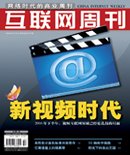电子邮件 : diànzǐ yóujiàn - email

In English we haven't fully decided if it should be "email", "e-mail" or "E-mail". But in Chinese it's usually 电子邮件 (). This simply combines "electronic" and "mail". Sometimes it gets abbreviated to 电邮 (). (OK, I've also seen 伊妹儿 for email, this is probably phonetic).
Getting the less interesting second half out of the way first, 邮 () is "postal" and is used in many postal related words for stamps and post office etc. 件 () we've seen before in 软件. So 邮件 ("mail") is a postal piece.
But 电 () is another really common and useful character in high-tech terms, and also easy to remember and recognize. It originally meant "lightning". Think of it like a cloud, the little hook below is the lighting coming down. This can be even more clear in the traditional version, here it is in a large size so you can see it: 電. The top part means "rain", you can see the little raindrops in there.
Nowadays 电 also means "electricity". 电子 () is "electron" or "electronic" (子 can mean "child" but also "seed". It can be a diminutive, but is often added to a character to make a two-syllable noun). If you see 电, you can be pretty sure that it's something electrical or electronic. Some more common words are 电话 (, "electric-speech") or "telephone", and 电脑 (, "electric-brain") meaning "computer".






